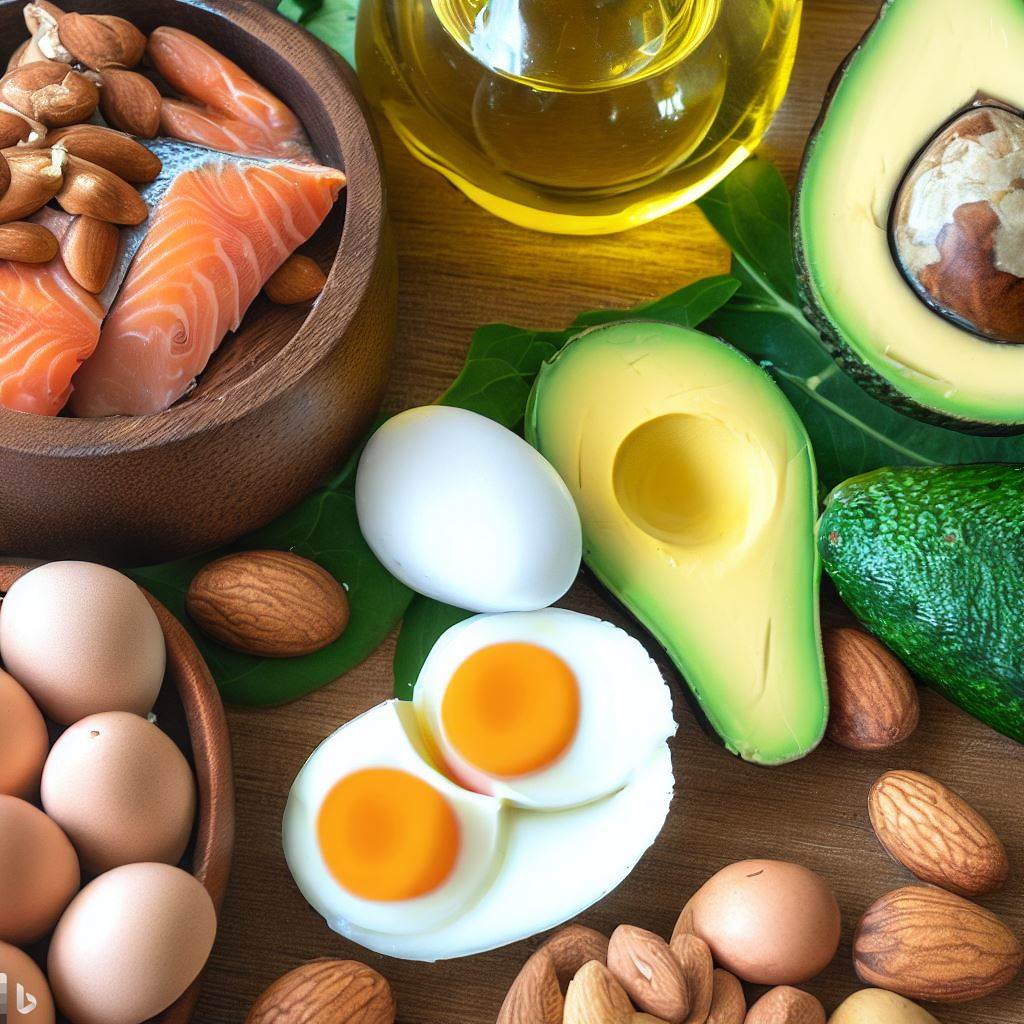I’m writing this post because someone close to me was recently diagnosed with a common and treatable form of cancer. My hope is that these thoughts are helpful for them, and others, as they reexamine their diet and lifestyle that may have contributed to their condition.
My opinions on diet change – rather, are refined – constantly. This is what I find works for me now, as I spend more time tuning into my body and correlating my body’s response to different stimuli, whether diet, exercise, mental health, and more.
I have to mention, that working with my wife’s healthcare company, Parsley Health, can help provide a framework, data, and clinical support for making critical changes in ones diet and lifestyle. I’ll also include some links below that I found helpful in my early education.
Some Basic Truths (As I See Them Now)
- Sugars and its more complex form, carbohydrates, are generally unhelpful. Unless you are living a hyperactive lifestyle (rare in the modern age). Carbohydrates can be helpful if aggressively training, doing physical labor or want a few extra hours of pep once in a while but otherwise, they cause more harm than help.
- Eating a high protein / fat / veg diet is generally a good fit for our predominantly sedentary (office work, driving, instagramming) lifestyle. Historically speaking, we should probably be eating more aligned with ‘famine’ than ‘feast’.
- Reducing sugar consumption reduces inflammation. Inflammation, for me, reveals itself as a testy mood (and biting humor!), bad skin, depression, and joint pain. Inflammation generally leads to really bad things, including in theory, cancer.
What I Eat
What I Eat, Anytime
Caveat: fat is more caloric than carbohydrates so you can’t go apesh*t with this stuff. If you eat more than you burn, you will gain weight. The good news is that generally, a high-fat diet is more sating and you’ll have less of an urge to binge.
- Avocados
- Eggs
- Oily Fish (canned sardines, smoked whitefish, and cured salmon are my favorites)
- Low Sugar Nuts (macadamia, walnuts, almonds – cashews and other ‘sweeter’ nuts are out)
- Tart, organic berries (blues, black, straw)
- Healthy Fats (olive oil, grass-fed ghee, macadamia nut oil, coconut oil)
- Organic, Grass-Fed, More Expensive, Hard to Find, Elitist-Unless-You’re-A-Small-Farmer, Meat (85% ground, bison, pastured happy bacon, dark meat poultry, low-mercury fish, etc)
- Plant-Based Protein Supplements (pea protein is a good additive to shakes)
- Salt
- Spice (cumin, coriander, curry, etc)
- Heat (fresh chilies, no-sugar hot sauces. Heat becomes a very good friend when you cut our sweetness)
- Leafy Greens (kale, chard, etc)
- High Acid, Low Sugar Citrus (lemons, limes, but not oranges)
- ‘Filler’ Vegetables (cauliflower, cabbage, summer squash, brussels. These guys are saviors – low calorie and often low nutrient, but terrific ‘bases’ to dishes to absorb fat and flavor and keep you full/busy eating)
- Coffee / Tea (blend in some MCT powder or cacao butter in the AM and you’ll find it easy to delay your first meal and stay in a ‘faux fasted’ metabolic state until 11a or later)
What I Eat, Once In A While
- No-Sugar Alcohol (dry natural zero-residual sugar wines, clear liquors like tequila mezcal vodka and gin)
- Organic Seasonal Fruits (tomatoes, apples, peaches, etc)
- Rice and Other Unsweetened Gluten-Free Carbs (so, I love Schezuan food, and I will half a half-helping of white rice when eating that food, but generally speaking this is a total cheat and should be done on rare occasions. French fries also fall into this category. I’ll have them when they’re good, but mostly not. Fun tip, french fries + mayo >>> french fries + ketchup. The addition of fat to the carbs helps mute your glycemic response. That response is a double negative when you add super-sweet ketchup to the potatoes. Again, pick your spots for this stuff – maybe 2x a week)
What I Eat, Basically Never
- Sweet Alcohol and Other Beverages (all beers, all ciders, aperitifs, sweet vermouth, tonic water, sweet industrial wine, aka most wine)
- Breads / Sweets / Ice Cream / Dessert (this goes out the window when I travel to France, but I absolutely feel it on the flight home)
- Gluten Free Breads / Sweets (to be clear, these are metabolically disastrous in the same ways as gluten-full bread would be. Avoid)
- Sweet Veg with Hidden Starches (corn, bananas, sweet potatoes, sweet winter squash)
Things That I Also Avoid For Other Reasons
- Gluten. I’ve tested removing this on and off over the past 4 years and am clear that I generally do better without it. I bring it back in the fold on special occasions, with good results, and I have a hunch that a low-carb diet helps me manage the occasional high-quality gluten feast.
- Dairy. Correlates with acne, so I avoid it.
- Mid / High Mercury Fish. Large fish like tuna, mackerel. Heavy metals stay in your body indefinitely and removing them through chelation is a pain.
- Processed Foods. Generally speaking, there are almost always nasties hidden in here.
Example Meals
Breakfast
- Nothing.
- I don’t want to side-track us here but your body is probably designed to thrive fasted for upwards of a week, so skipping brekkie is no biggie.
- Don’t sweat hunger. A 3 day fast is a good way to get to terms with this feeling. It’s really not a bad skill to master, and I don’t want/mean to sound like a sadist. Hunger pangs pass quickly and I don’t find them to be a big deal.
- A fatted coffee (above) can help you feel like you’ve eaten while tricking your body to think it’s in a fasted state
- Counterpoint #1: Humans are almost certainly better designed to fast at night than in the morning. Moving your metabolic clock off your circadian clock is generally a bad idea. That said, evening fasting is much harder to do socially, so I think an AM fast is better than nothing — anything that limits your digestive period is probably a good move.
- Counterpoint #2: Per the circadian point above, fasting / low carb probably makes more sense in the winter than in summer (fewer available natural carbs, less sunlight)
- Bacon & Eggs. Pastured bacon cooked without draining the pan with absorbing veggies (cauliflower, kale, onions, summer squash), fresh chilies, garlic and topped with two pasture eggs
- Whitefish Omelette. Veggies cooked with a bunch of ghee, 3-4 quality pasture-raised eggs, whitefish, sage.
- Protein Shake. I like Parsley’s Rebuild shake but actually find it a bit too sweet for me, so I’ll make it 50% rebuild and then doctor up the fat (MCT, coconut, cacao butter) and protein (naked pea protein) content
Lunch
- Organic Buffet. There is a conscious Korean buffet near my office that offers a bounty of healthy, low carb options. I’ll often go with greens (both collards w/ garlic and kale with pepitas), baked salmon and some chicken salad
- Nopal Taco Plate. My favorite NYC taco chain, Los Tacos Numero 1, opened an awesome in midtown, even more awesome is that they offer a cactus-based plate with salsas, beans, guacamole, and meat. I alter my order by skipping the cheese and tortillas
- Chinese. Schezuan dry pot. Tons of flavor, mystery ingredients, and very little sugar/carbs outside of the rice which I eat sparingly and sometimes not at all.
- Baked Chicken, Rice & Beans. Ok, so this is cheating, but intentionally so. Sometimes my body NEEDS carbohydrates and I give it some good one. This is a rare occasion, but perhaps: I had a bit too much to drink the night before, I have a big evening ahead (physically, socially) where I know I’ll use the extra energy, or I’m simply feeling depleted and I know my fix.
Dinner
- Cauliflower and Ground Meat Stir Fry. Cauliflower, summer squash, okra, onions, cumin, cardamom, salt, fresh chilies, a little fresh tomato if summer, ground meat. Sometimes a bit of well-sourced chorizo goes into the pan first to add additional flavor. Top with parsley, lemon, and sea salt. I could honestly eat this every day.
- Baked salmon and a ton of veg. Enough vegetables and you don’t miss the starches
- Seafood curry. Full-fat coconut milk plus quality curry powder and whatever vegetables and seafood look good that season. Cauliflower or cabbage can add filler to replace rice.
Dessert
- Ha, made you look. Help yourself to a second glass of residual sugar-free wine instead.
Thoughts? Disputes? Want to argue about nightshades? Great recipes to share? Shoot me a note.

